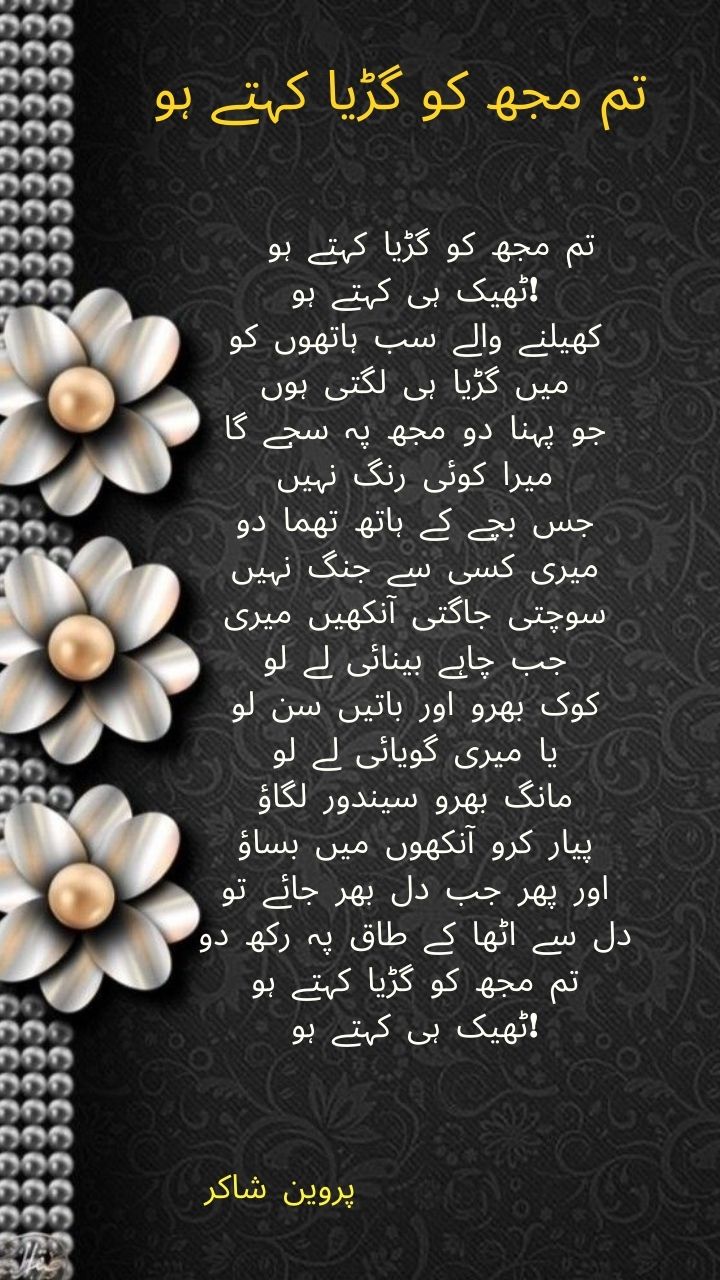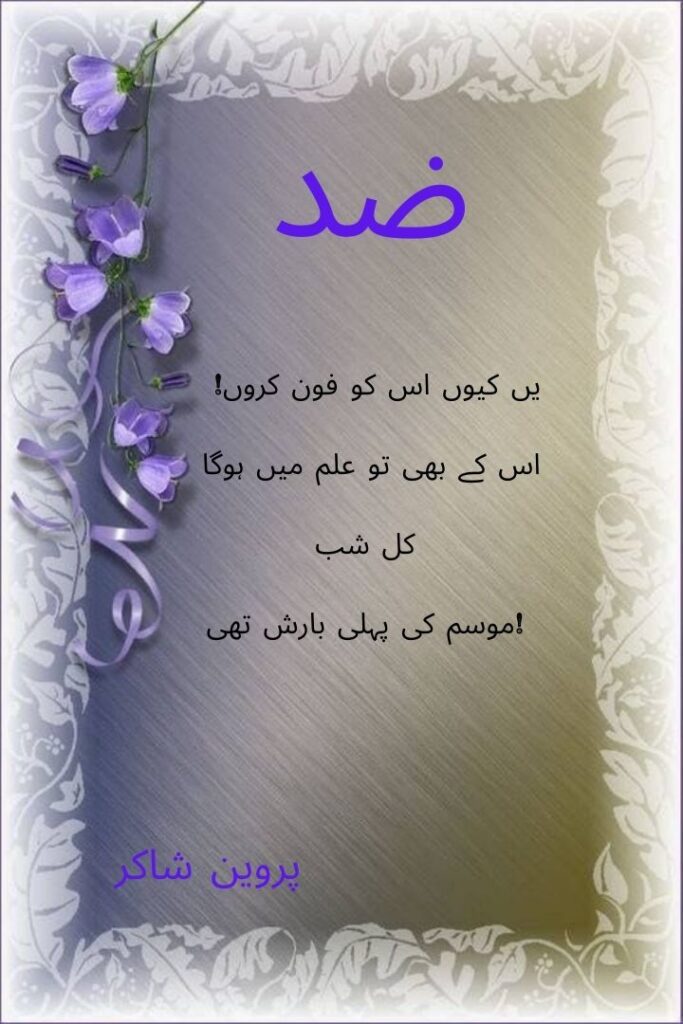The Timeless Beauty of Parveen Shakir’s Poetry
Parveen Shakir, a renowned Urdu poet, is celebrated for her profound expression of emotions and experiences, especially in the realm of love, relationships, and the complex identity of women. Her delicate yet impactful verses resonate with readers, touching on themes of heartache, self-reflection, and social commentary. Let’s explore three of her remarkable poetic works that demonstrate why “Parveen Shakir best poetry” continues to captivate audiences.
The Symbolism of the Doll: Parveen Shakir’s Reflection on Womanhood
In the first poem, Shakir uses the metaphor of a “doll” to depict the societal expectations imposed on women. The lines, “You call me a doll, and you’re right to say so!” evoke the image of a woman reduced to a mere object—adorned, played with, and then discarded. Shakir poignantly captures the frustration and submission that many women feel, being valued only for their appearance or silence. The expression “I have no color of my own” symbolizes how a woman is expected to conform to the desires of others, with no space to express her true self.
In this poem, Parveen Shakir sheds light on the way women are often treated like dolls, existing for others’ amusement or affection. Her subtle, poetic protest against this dehumanization is what makes “Parveen Shakir best poetry” a crucial exploration of women’s identities.
The Power of Silence in Parveen Shakir’s Poetry: The Rain That Speaks Volumes
The second poem reflects a more personal and internal conflict. The lines, “Why should I call him? Surely, he must also know that last night was the season’s first rain!” show the poet’s reluctance to reach out to someone with whom she shares an emotional connection. Shakir masterfully uses the rain as a metaphor for emotions—just as the first rain marks the beginning of the monsoon, it also represents an outpouring of bottled-up feelings.
Parveen Shakir, as a poet, beautifully captures the hesitation of human emotions, where pride and vulnerability are at odds. She suggests that some things, like the first rain, are universally felt, without the need for verbal communication. This quiet yet profound intensity, conveyed through imagery and emotion, is an example of “Parveen Shakir best poetry” that speaks directly to the heart.
The Intimacy of Imagined Love: A Moment with Parveen Shakir’s Poetry
In the third poem, Parveen Shakir delves into the intimacy of unspoken love and longing. The lines, “Who knows how long your picture stayed in my eyes,” describe the poet’s deep emotional connection with a beloved figure, so strong that it transcends physical presence. The night passes as she stares at a picture, lost in her thoughts, until she gently places a kiss on the image, blurring the line between reality and imagination.
Here, Shakir conveys the pain and beauty of distant love, where the heart seeks connection through memories or even illusions. This tender and melancholic portrayal of longing is why “Parveen Shakir best poetry” resonates with readers who have experienced unfulfilled or distant love. The kiss on the picture symbolizes a love that exists in the mind and heart, untouched by the world, yet intensely real for the one feeling it.
Conclusion: Why Parveen Shakir’s Poetry Still Echoes Today
Parveen Shakir’s poetry masterfully encapsulates the inner struggles and emotional landscapes that many people, especially women, navigate in life. Her ability to craft vivid images and delicate emotions in simple yet profound language is what makes her work timeless. These three poems exemplify why “Parveen Shakir best poetry” remains beloved by many, as it speaks to universal experiences of love, identity, and emotional depth.
Her poetry goes beyond mere words, offering a window into the complexities of the human soul, making Parveen Shakir not just a poet but a voice for countless people who feel, love, and struggle in silence.
تم مجھ کو گڑیا کہتے ہو
ٹھیک ہی کہتے ہو!
کھیلنے والے سب ہاتھوں کو
میں گڑیا ہی لگتی ہوں
جو پہنا دو مجھ پہ سجے گا
میرا کوئی رنگ نہیں
جس بچے کے ہاتھ تھما دو
میری کسی سے جنگ نہیں
سوچتی جاگتی آنکھیں میری
جب چاہے بینائی لے لو
کوک بھرو اور باتیں سن لو
یا میری گویائی لے لو
مانگ بھرو سیندور لگاؤ
پیار کرو آنکھوں میں بساؤ
اور پھر جب دل بھر جائے تو
دل سے اٹھا کے طاق پہ رکھ دو
تم مجھ کو گڑیا کہتے ہو
ٹھیک ہی کہتے ہو!

میں کیوں اس کو فون کروں!
اس کے بھی تو علم میں ہوگا
کل شب
موسم کی پہلی بارش تھی!

جانے کب تک تری تصویر
نگاہوں میں رہی
ہو گئی رات ترے
عکس کو تکتے تکتے
میں نے پھر تیرے تصور
کے کسی لمحے میں
تیری تصویر پہ لب
رکھ دیے آہستہ سے!




